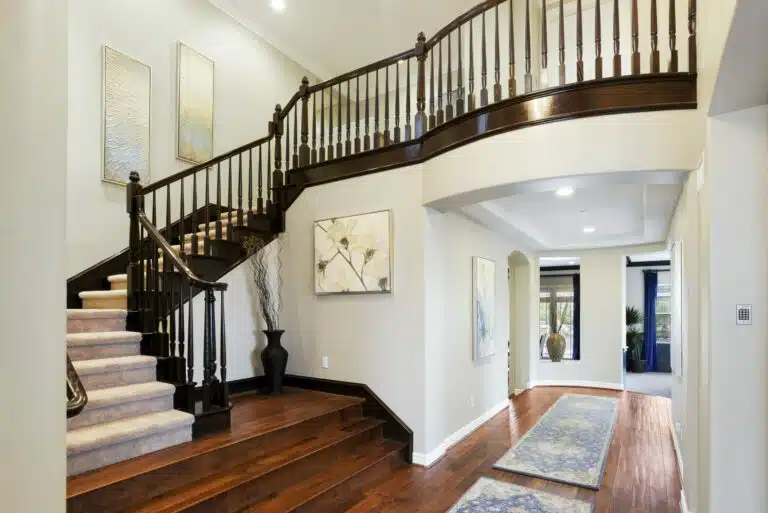Agoraphobia Treatment in Los Angeles
Take the first step toward freedom—our agoraphobia treatment program helps you safely overcome fear and reclaim your independence.
Call Us Now
If you or a loved one struggles with agoraphobia, you’re not alone. This debilitating anxiety disorder can have a profound impact on daily life, making it difficult to engage in everyday activities and find joy in once-familiar places. Whether it’s avoiding social events, public spaces, or even leaving the house, the effects of agoraphobia can be isolating and overwhelming. But there is hope, and help is available.
At The Meadowglade, we specialize in providing compassionate, effective treatment tailored to each individual’s needs. Our comprehensive approach focuses not only on managing symptoms but also on empowering clients to regain control and build a life that’s fulfilling and anxiety-free. If you’re ready to take the first step toward recovery and break free from the cycle of fear and avoidance, we are here to help. Contact us today to learn more about how our expert team can support you on the path to lasting healing.
If you or a loved one are struggling, learn more about our Los Angeles mental health treatment programs by verifying your insurance or calling us at 888-862-1788.
What is Agoraphobia?
Agoraphobia is an anxiety disorder characterized by the fear of being in situations where escape might be difficult or help unavailable in the event of a panic attack. The condition often leads to individuals avoiding public places, crowded areas, or situations where they feel trapped or unable to easily leave. It can cause significant distress and prevent individuals from engaging in daily activities, such as work, school, and social events. Although agoraphobia is commonly associated with panic disorder, it can occur on its own or alongside other anxiety-related disorders.
The fear of leaving one’s home is a hallmark symptom, but it can also extend to avoiding areas such as shopping malls, public transportation, and even places where a person might feel vulnerable or exposed. This avoidance behavior can worsen over time, leading to increased isolation and more severe symptoms.
Signs & Symptoms of Agoraphobia
If these symptoms sound familiar, it’s crucial to seek professional help. Agoraphobia often requires tailored treatment that addresses both the emotional and physical components of the condition. The symptoms of agoraphobia can vary widely in severity, but some common signs include:
- Avoidance Behavior: Constantly avoiding situations or places that may trigger anxiety. This can include avoiding leaving the house, traveling to unfamiliar locations, or participating in social activities.
- Panic Attacks: Feelings of intense fear, shortness of breath, rapid heart rate, dizziness, or feeling detached from reality, often occurring in places where escape might be challenging.
- Fear of Open or Crowded Spaces: Fear of being in wide-open spaces or crowded areas, like malls, airports, or public transportation.
- Physical Symptoms: Sweating, trembling, nausea, dizziness, or feeling faint in situations where one feels trapped.
- Distress or Panic When Exposed to Triggering Situations: Individuals with agoraphobia might experience overwhelming fear when thinking about or encountering triggering situations.
What Causes Agoraphobia?
The exact cause of agoraphobia remains unclear, but several factors may contribute to its development. Understanding these contributing factors is vital for developing a treatment plan that addresses both the root causes and the symptoms of agoraphobia.
- Genetics: A family history of anxiety disorders, depression, or other mental health conditions can increase the likelihood of developing agoraphobia.
- Trauma and Stress: Experiencing stressful or traumatic events, such as abuse, loss, or major life changes, can trigger the onset of agoraphobia. A person may develop this condition after experiencing a panic attack or a traumatic event, leading to a fear of similar situations.
- Biological Factors: Brain chemistry and irregularities in neurotransmitters like serotonin and dopamine may contribute to anxiety disorders, including agoraphobia.
- Psychological Factors: People with agoraphobia often have heightened sensitivity to anxiety, which can cause them to perceive normal situations as overwhelming or threatening.
- Cognitive Factors: Dysfunctional thought patterns, such as excessive worry, catastrophizing, or the fear of losing control, may contribute to the development of agoraphobia.
How Does Agoraphobia Affect Someone?
Seeking treatment for agoraphobia is essential to prevent the disorder from taking over one’s life. With proper care, individuals can regain control and enjoy a life free from the constraints of anxiety and fear. Agoraphobia can profoundly affect an individual’s personal, social, and professional life. Its impact can extend beyond the immediate symptoms, leading to:
- Social Isolation: Avoiding social interactions out of fear can cause individuals to become isolated from family and friends, leading to feelings of loneliness and depression.
- Job and Educational Disruptions: The inability to leave the house or navigate public spaces can hinder career advancement or academic success.
- Relationship Strain: Partners, family members, and friends may become frustrated or confused by the avoidance behavior, leading to strain in relationships.
- Increased Anxiety and Depression: Agoraphobia often co-occurs with other mental health disorders, such as generalized anxiety disorder (GAD) or depression. The longer the condition goes untreated, the more likely it is to exacerbate other underlying issues.
- Reduced Quality of Life: As the avoidance behavior intensifies, individuals may miss out on significant life experiences, such as travel, social events, or pursuing hobbies.
Our Anxiety Treatment Programs in Los Angeles
At The Meadowglade, we offer a range of treatment options to help individuals struggling with agoraphobia. Our comprehensive approach is grounded in evidence-based therapies and designed to meet the unique needs of each client. We offer the following levels of care to ensure that every client receives the appropriate support for their recovery journey:
- Residential Treatment: For individuals requiring a higher level of care, our Residential Treatment program offers 24/7 support in a structured and secure environment. This intensive treatment option is ideal for those who need constant supervision and assistance in managing their agoraphobia symptoms while focusing on healing.
- Partial Hospitalization Program (PHP): Our PHP is designed for clients who need intensive therapeutic support but can function outside a residential setting. This program provides a full day of treatment, including individual therapy, group therapy, and other therapeutic services, while allowing clients to return home in the evenings.
- Intensive Outpatient Program (IOP): For those transitioning from PHP or needing a less intensive option, our IOP offers flexible scheduling and part-time treatment. Clients engage in therapy several times a week, allowing them to continue daily activities like work or school while receiving critical support.
- Outpatient Treatment: This program is ideal for individuals who need ongoing support to maintain progress after completing higher levels of care. Outpatient treatment includes regular therapy sessions and check-ins to help clients continue managing their agoraphobia symptoms and prevent relapse.
- Supportive Housing: For individuals who need a stable, supportive living environment while continuing their treatment, our supportive housing option provides a safe, community-based setting. This program ensures that clients have access to the resources they need to thrive while maintaining their independence.
How is Agoraphobia Diagnosed?
A proper diagnosis is critical for developing an effective treatment plan that targets the unique aspects of the disorder. To diagnose agoraphobia, a mental health professional will conduct a thorough evaluation that includes:
- Clinical Interview: The provider will ask detailed questions about symptoms, medical history, and the impact of the condition on daily life.
- Psychological Assessment: Standardized questionnaires and assessment tools, such as the Panic Disorder Severity Scale (PDSS), may be used to assess the severity of the symptoms and determine if they meet the criteria for agoraphobia.
- Exclusion of Other Conditions: The provider will work to rule out other possible causes for the symptoms, such as other anxiety disorders, medical conditions, or substance abuse.
- Behavioral Observation: Clinicians may observe the individual’s behavior in various settings to understand the severity of avoidance tendencies and anxiety triggers.
How is Agoraphobia Treated?
Agoraphobia is treatable, and many individuals experience significant improvement with the right approach. While treatment may take time, individuals can regain confidence and learn to manage anxiety in a healthy way with the right resources and support. Treatment often involves a combination of the following methods:
- Therapy: Cognitive-behavioral therapy (CBT) is the gold standard for treating agoraphobia, focusing on changing distorted thinking patterns and behavior. Exposure therapy is particularly effective for gradually desensitizing individuals to feared situations.
- Medication: In some cases, medications such as selective serotonin reuptake inhibitors (SSRIs) or benzodiazepines may be prescribed to help manage anxiety and reduce panic attacks. Medication is often used in combination with therapy for optimal results.
- Lifestyle Changes: Exercise, healthy eating, and good sleep hygiene can significantly reduce anxiety symptoms. Developing a routine that includes physical activity and relaxation techniques is also beneficial in managing agoraphobia.
- Support Networks: Joining a support group or engaging with a therapist in individual or group settings can provide essential encouragement and guidance during the recovery process.
Learn More About Agoraphobia Treatment in Los Angeles
At The Meadowglade, we are dedicated to helping individuals overcome agoraphobia and reclaim their lives. Our compassionate, evidence-based treatment programs are designed to address the unique needs of each client, providing support every step of the way.
If you or someone you love is struggling with agoraphobia, don’t wait any longer to seek help. Contact The Meadowglade today to learn more about our treatment options and take the first step toward a life of freedom and peace. Let us help you break free from the constraints of agoraphobia and find lasting healing.
More on Anxiety
- Navigating Anxiety: Inpatient Care & Stress Relief
- Anxiety Management: Finding Inner Peace in Daily Life
- What’s It Like Living with Anxiety and Depression?
- Manage Anxiety and Stress: 5 Positive Coping Mechanisms
- Living with Anxiety: 10 Easy Ways to Help You Cope
- Unpacking Anxiety: How Therapy Can Help
- Appetite and Anxiety: Understanding the Connection
- Social Anxiety: Unexpected Signs You Might Be Overlooking
Our Mental Health Specialists
At The Meadowglade, our team of compassionate and experienced mental health professionals is dedicated to providing comprehensive mental health treatment in Los Angeles. Our multidisciplinary team works collaboratively to offer personalized care tailored to each individual’s needs.

Narine Babikian, MHA

Joseph Gulino, MD

Yj Kim, MD
Mental Health Programs

Yj Kim, MD
Psychiatrist

Haroon Burhanullah, MD
Psychiatrist

Narine Babikian, MHA
Executive Director








